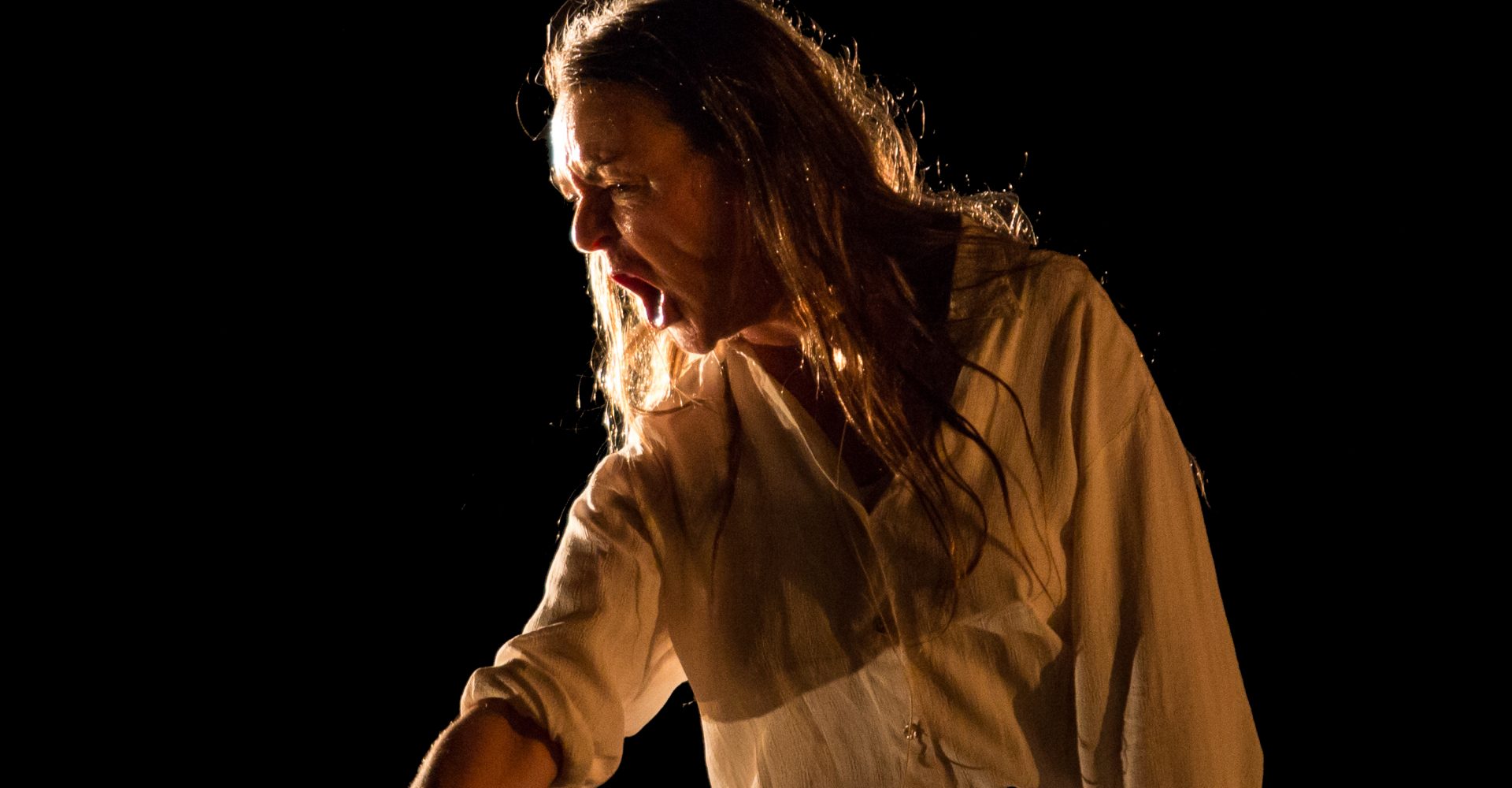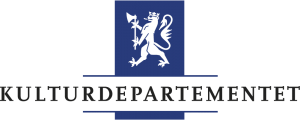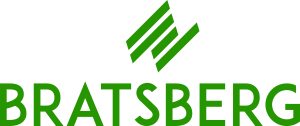To keep darkness at bay, by Geddy Aniksdal

One exercise can teach you to take in the whole of the room of where you are standing. Another to take in the whole reality of the life you are living.
If I think of the physical exercise of lowering yourself down on your knees with the
rest of the body erect, almost in a backwards arch, whilst maintaining the same slow,
controlled tempo, and I think of this as my life in theatre up until now after twenty-five
years of practice, I think I am at the stage of the exercise towards the finishing point
where the impulse to fold your body, or lower it down more rapidly to the ground is at i
ts strongest. It is vital in this exercise not to give in to that impulse.
One morning not long ago, I woke up with a strong sensation that there was no band aid solid enough. I seriously doubted theatre practice as a survival kit. Pointless. Useless. Out of date? What was the f…..g point of all our activities anyway? Really? And who cares? Who needs theatre? Of all things.
Dark media made images flashed in front of my eyes, the genocide in Rwanda, the earthquakes, floods and famines, the corruption and corporate criminality, the apparently locked situation in The Middle East. Dark private flashes of friends and family being sick or in despair, flashes of rage at myself for being in a situation with too little time to care.
As I always in general, but not every day in particular, doubt what I am doing, this means it is time for a walk: literally and metaphorically speaking, to find a way out. I could not turn to God, as I do not believe in him, and I did not really want to speak with anybody else either. I went to the river. There is a memorial there. A modest monument for the local sailors who died at sea during the Second World War.
Standing by the river, in the midst of trees in the park by the Seafarers Museum, resting my eyes and thoughts on the list of names engraved on the monument helped me get a perspective. And I think that if I have any longer any method, technique, strategy for survival, it is to keep struggling for a perspective.
I often want to give up, say no, go away, be elsewhere, read hundred books in a row. Play eternally with grandchildren throwing pebbles in the water, paint with my daughter, bike with my son, write long letters to my mother and father, go for walks elsewhere, than by the river, with my sister and brother maybe, talk of all and nothing at all.What would we be without dreams? I always return to the theatre. Can I think of theatre practice as a survival kit? A practice of trying to be fair, honest and to do well. To have aims and objectives. And only sometimes the angels come down and create magic…
A possibility of shaping, sharing, fighting for your own ethics, morale and beliefs in all aspect of work exists in the theatre collective. We can influence, stand up for, speak up for. Have a practice. Why did some of us start with theatre, and group theatre in the first place? It was a search for a place to belong, a search for a community where you felt included, not like society in general where we often felt excluded, or did not want to belong. It was a strong definition of them and us. Where I am at now, my various works, tasks and practises are so intervowen, I see them in a more overall perspective.This may be something more to do with philosophy and history and lived life than the concrete training in the space. However, my reference and the temptation to make analogies, comes from those first concrete, tactile exercises in the space. The long, slow work of becoming a prepared actor. I am full of scepticism as to how or whether I can pass those skills on, on paper. And I still think that to share is of vital importance. There is a travelling anecdote within European group theatre about some of the early methods of training, originally described in a book by Jerzy Grotowski. The story goes of a young theatre group getting hold of a copy of the book, but without knowing the language in which it was written well enough, in their attempts to learn the exercises they developed a whole new set of exercises, the no-hands exercises as we call them, trying to do the already complicated hatha-yoga and preacrobatic exercises without using their hands, or arms.
The intelligent actor has knowledge, deeply rooted in the body`s own memory and sensory system. A body intelligence that can be called upon, that can answer, solve, or counter propose when a question, or discourse is being raised.The body inhabits a language of its own, it talks, writes. This intelligence might also oppose/object to the spoken/written language as it is based on another system of thinking/feeling. The moment I start to describe my work, it sounds inadequate, incomplete; it is not possible to find a formula which takes into consideration the various circumstances in which every single exercise is carried out by one unique person with her dispositions, background, brain and body, in one particular room, somewhere on this planet. As I think of myself as different from others, I must believe that all the others must be equally different from each other and me. The doubt about describing the transferrance of knowledge doesn’t have to be based on lack of knowledge or experience, rather the opposite. Experience has shown me this. To transfer knowledge we would simply have to be together, to walk a time, to experience together, to plan, carry out and try to understand why there is no formula.Who am I to tell ? I am not trustworthy. I am disobedient. I have found a possible way of refusing to do what I am asked, by counterproposing. I improvise. I deviate from the original plan. I think it is necessary to put oneself at risk. At least I think it is necessary that I as the actor, with my role and responsibility am present fully, in situations, that are so different from one evening to another. I do not believe, in the work that we do, that I can repeat or recreate only what I did yesterday, if today calls for something else. Tomorrow the world is a day older, the audience is new, we have changed, an other actor will do something that calls for another action to yesterday. It is as if I myself do not even know fully what the actor/me is going to do, before she is in the process of doing it. Doing adds danger, risk, it fills the material and the score, the acting with new life, literally.
When I am performing now, do I really still think anymore? There is so much information stored from earlier on, that I can push my own play button, charge and go. I trust that the actor will know, that she will surprise us both. I trust that I will tap into my own and our collective memory.
But how? My younger colleagues ask me. How do you practice this?Sometimes it is as if they are asking for the recipe, and I wish I could answer as matter-of-factly as listing up the ingredients, although I am not good at following recipes either, but, truth be told, even when I do follow a recipe, it does not guarantee a better result either. The recipe is me I am afraid, the special mix that is me, this mixture of genes and context. During my first years at Grenland Friteater I was probably more catholic than the Pope himself in terms of following and advocating what was then our practice. As I get older, I am becoming more of an agnostic, more doubtful…
We can prepare to live on or off stage, but we cannot be sure what will happen, how it will work. There are too many variables. We can only guide one another on a certain part of the journey. Share our mutual observations, experiences and doubts as we go along.
Last year, during the celebrations for my 50th birthday at the theatre, the people giving speeches were almost all women, women who in their early days were pupils at the theatre, as well as older colleagues. They all stood up and spoke. They spoke well. I felt our mutual practice, our exercises acknowledged and seen. Something of value had been passed on.
Also in the Magdalena Project we have tried to maintain a focus on the craft, on theatre itself, on the practitioners, and have put the practice first. Questions, themes, proposals to be dealt with by the actor, alone or with the director are sought, in workshops, practical sessions, work demonstrations, etudes, improvisations, new training methods, new constellations. It is an ongoing marathon where one gives the baton to the next woman who has an input on the topics raised.Often one cannot say where or by which person a question was either put forward or answered, it is as though it was sent through the curiosity and interest of the people gathered.
In my practice as artistic director I plan, think, mull around and look as if I am not doing anything “important”. I wash and clean and do things I know well when I need to solve challenges in the other professions. Washing, cleaning and tydying are perfect tasks for thoughts to reappear. The thinking possible whilst doing these chores is of a certain kind. As the body itself is charged with excess energy, almost electric during artistic peaks, an almost mechanical movement helps it to settle and recharge energy, whilst the brain can go into an almost meditative level. Cleaning up means cleaning up, inside and outside. In a cleaning role in our theatre, or in another venue, I am also accessible to those not bothered by me cleaning, and left in peace by those who should have cleaned themselves.
During this process it is possible to think, or more precisely, let the thought have time to become the answer or solution sought.
…waking at 5.30am getting into clothes without thinking of the unatural speed of getting dressed thinking all the time, will I remember, will I remember. As director I often keep on working during the night when sleeping/dreaming/ thinking and wake up at intervals with good solutions to challenges in the work. Waking in the morning being afraid that the thoughts will be gone. After years of practice I know that the good thoughts will stay. I have only to put myself in a state where they can reappear. Still I doubt…
Almost the same, but not so obviously beneficiary for the surroundings are Kung Fu training. For years now, there has not been regular practice of the earlier physical and vocal training that we did in the original group. In workshops and work meetings this is still practised and used as one possible way in to creating your own actors score, your own actor`s material, having a practice of your own also when not engaged in the makings of a performance.
What we as a group have managed to bring into the equation is Kung Fu training.
After twenty years of practice for me it has developed into an almost physical and mental necessity, and in the most hectic periods when even the Martial Arts training is missed, there is a sensation of abstinence in the body. To know some of the warm up exercises, the preparation exercises, the strengthening exercises and the forms so well gives the body, the whole body a treatment that stimulates the energy needed for the rest of the day. I try to empty myself from all, just do, let this old knowledge guide me throgh the routine, and in the emptying I become levelled, balanced, and very often high spirited. It is an excellent way to start a day. And many solutions and good proposals find their way in then.
If when the group was founded there was a big divison between them, (the outside world) and us, some of them has sneaked in. We are busy in a way that they were. We have to make compromises and take shortcuts as they did. We live and work in many worlds, as the world wants our work.A lot of it, but we are only so many. And we are getting older. It seems a long time ago since I could put on only one hat, the “I am an actor” hat, and talk about the work from that perspective. Where did that person go? Is she still here? Is it the actor that has informed the other professions that naturally arrive when working in group-theatre for a long time?
A workshop with Ingemar Lindh, from the Institutet for Scenkonst was my starting point at Grenland Friteater, and it also meant a new direction of work for the whole company.
A forward roll. A backward roll. A backward roll going up into a candle, flip over back through the shoulder, onto your chest, roll down on pelvis and thighs. Arch. A leap up in the air, turn in midair and get gracefully down again. “Hang in the air”. To stand on your hands, to walk on your hands, and to be able to fall over into an arch, and get up on two legs again. To sit on your bum, and with the body in an arch get up, without falling backwards.You just need the explosive energy fired through the lower back. From there, jump and smack your knees onto your chest. After coming back down, leap again and make a new arch where you smack your hands onto your ankles, whilst in the air.bending backwards. I thought: never, ever in my life will I be able to do that. Ingemar was older than me, but I felt at that time very heavy, very old, and very sad.
I also thought that it was very important that I should master these exercises.
I was 25 years old, I had been taking care of myself for almost ten years, now I had paid quite a lot of money to be inside a big meeting hall standing on my head with a lot of other people. I had been standing on my head without paying since childhood. I never imagined it could have anything to do with theatre. After all I had been in amateur theatre when young and we did nothing of the sorts.
My father was athletic and we did acrobatics for fun in in the summer. If he had seen me in this meeting hall he would have thought I had gone mad. Pay to play! Indoors, and no talking, no laughing, it was a serious thing. It was meant to lead somewhere. I had difficulties understanding that there was more to do after having learned how to do the exercise one way. Maybe I thought about it like manual work, like at the assembly line, when you have done your task, wait for another. Later on I understood that I worked my body like a meccano set, like a japanese doll that rolls back into position no matter where you place her.
Preferably in the corner furthest away from the master.
One part of me was full of trust and eager to go onto a new path, another part of me thought I had entered a madhouse of some sort, or that it was all some kind of joke, and it was maybe my first experience of double vision, that you are inside and outside at the same time.This workshop changed my life, was the beginning of my theatre practice, my profession. It does not change the fact that I feel, still, an outsider of sorts, and there is this chance that maybe I will always remain one, no matter how long I am practising.The doubt will be there. What is there to keep darkness away? Trying to work well ought to keep one busy; learning something helps you concentrate. When you concentrate you keep darkness at bay.
Geddy Aniksdal







